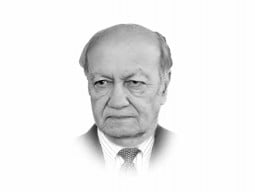
The approval of a $7 billion IMF loan has brought a glimmer of hope to Pakistan's economic landscape. However, this marks the country's 24th engagement with the IMF - a stark reminder that Pakistan has failed to implement necessary reforms in its previous attempts. Securing this bailout required significant diplomatic and financial maneuvering, including securing $2 billion in commercial financing and over $16 billion in rollovers from friendly nations like China, Saudi Arabia and the UAE. While these nations have consistently shown their goodwill, the reality is that Pakistan has found itself trapped in a web of mounting debt due to years of governance failures and political short-sightedness.
Pakistan's governance structure, weighed down by inefficiencies, is one of the largest burdens on the national exchequer. Even after the 18th Amendment, a multitude of redundant ministries and departments still exist at the federal level, serving little purpose while draining national resources. Additionally, decades of political appointments have crippled public institutions, pushing them towards financial ruin. Pension obligations for retired employees have become an unsustainable challenge. A long-standing lack of fiscal discipline and economically irresponsible, politically motivated decisions have hollowed out the country's economic foundations, making it impossible to provide essential services like quality healthcare and education to its citizens.
The current economic crossroads presents a pivotal moment for Pakistan. If the government fails to make politically difficult decisions now, the opportunity to escape the debt trap may never come again. The recent IMF bailout offers a window of temporary relief, but without fundamental reforms, this too will become just another band-aid on a chronic wound. The consequences of inaction will be unforgivable in the eyes of history.
One area where the government has already demonstrated a lack of resolve is in its tax reforms. In an apparent concession to political pressure, the government has compromised with non-filers in sectors such as retail, real estate and agriculture. Moreover, efforts to privatise loss-making SOEs have been woefully slow. This indecisiveness is particularly troubling, given the already disproportionate tax burden placed on the salaried class and the industrial sector.
Rather than overburdening the same taxpayers, the government should be prioritising measures to stimulate economic activity. A strategic focus on boosting exports would be one of the most effective ways to achieve this. Competitive energy tariffs for export industries and efficient refund payments to alleviate capital shortages are critical steps in this direction. However, the government's current strategy of placing additional tax pressure on the salaried class is counterproductive. When citizens' incomes are disproportionately spent on taxes and basic necessities, consumer spending which is the backbone of economic growth shrinks. This lack of disposable income reduces overall economic activity and makes attracting foreign direct investment even more challenging.
Presumably, Pakistan cannot afford to remain perpetually dependent on international financial institutions. To break this cycle, the $7 billion IMF loan must be used to strengthen the economic foundation, not just patch over the immediate fiscal shortfalls. Pakistan's economy is on the cusp of a potential breakthrough, but political stability is a non-negotiable prerequisite for sustained growth. Political leaders need to recognise that their internal disputes and power struggles are contributing to the nation's economic instability, harming the very citizens they purport to serve.
The IMF loan offers a critical lifeline, but only if it is coupled with meaningful reforms that address the root causes of Pakistan's financial instability. Political stability, prudent fiscal management and bold economic reforms are essential if Pakistan is to break free from the cycle of debt and dependency.

1724584050-0/Untitled-design-(2)1724584050-0-405x300.webp)
1727685355-0/BeFunky-collage-(21)1727685355-0-165x106.webp)











COMMENTS
Comments are moderated and generally will be posted if they are on-topic and not abusive.
For more information, please see our Comments FAQ